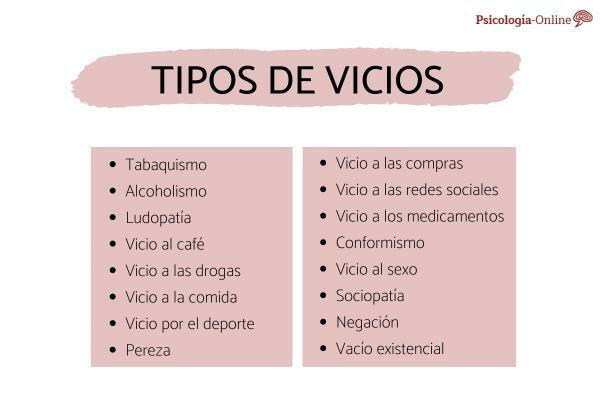For Msc. Barbara Zas Ros. March 6, 2018

The insertion of the social sciences in the field of health has had a history of romances and disagreements, of understandings and controversies, positions and unlimited invasions of particular spaces, interdisciplinary and ethical respect. Psychology as a scientific discipline has not been exempt from this history, and all professionals in the "psi" world who at some point in their lives workers have worked in health institutions anywhere in the world know and have experienced in their institutional spaces the veracity of this process.
Keep reading this PsicologíaOnline article, if you are interested or interested in knowing more about Psychology in Health Institutions.
Psychologists dedicated to the field of health we have had to invest a good time of our practices in demonstrating and delimiting our space professional in the various hospitals or health care centers of the different levels where we have gone inserting. The elemental is sometimes the most difficult to be understood, or as the fox in The Little Prince said: "... The essential is invisible to the eyes." (Saint-Exupéri A de, 1986, p. 93)
The social sciences, and in particular Psychology, have taken over a space that was previously only occupied by medicine: the health space. In this interrelation, Psychology is a science that has indisputably helped, interceded, has favored along with other disciplines of the social sciences to the so-called "humanization of the sciences medical ".
The first impression that makes me when I hear the phrase "role of Psychology in the humanization of medical sciences"It is that apparently the medical sciences have been so inhumane that other disciplines have come to save their reputation. I really do not believe in this, medical science is by its very nature and conception one of the most humanized that exists, so much so that its central role is to help man live healthier, care for and protect the lifetime.
These clarifications may seem to be unnecessary, but my intention is only one: Psychology in its development in the field of Health cannot be based solely on opportunistic criteria. It has and should have its own development as a science. It must respect, coexist and "humanize" I would not say the least human that we observe, but contribute above all to the understanding of why we are and act with a little more or less of humanization in our roles as health professionals, and there could be one of its most modest and collaborative functions to the "humanization" of the sciences medical... "the psychologist is a specialist in tensions of the human relationship or communication, and this is the specific field on which he must act." (Bleger, J, 1994, p. 39).
Psychologists have been working for several years in health institutions in Cuba, and we could start from "what should not be", to define what has been and "should be" the role of Psychology as a science in a particular field that are health institutions.
Something that should not be and that unfortunately has happened and still occurs on occasions, is undoubtedly an indisputable interprofessional ethical problem that has been happening to us throughout all this time, and that the false functions have been attributed to the psychologist, which has sometimes conformed a false image or distorted image of the role of Psychology in Health.
- The tiny aura o herald of misfortunes.
Our services have been requested from us to announce deaths, amputations, operations, and other unpleasant events. - The Last of the Mohicans.
After a patient was seen by ten specialists in ten days and they found nothing and he is also a so-called patient "Conflictive", on the eleventh day they call us, so that prior to his discharge that will occur on the twelfth day, we discover that his problem is psychic. - The put out fire.
There is a conflictive situation in the room, possibly caused by some technical or ethical error that someone made, and we are called to calm down, let us control the disturbed family members or the "protesting" patient.
Anyway, I could cite many others, but these are the most common, that by not facing them as as expected by the medical staff who requested it, they then make us a classic question: And what are you for then? The psychologists?
Very quickly I would say in the first place, to prevent us from being used in these false functions, to teach in what functions we can be better used and thus allow the first objective of the existence of a Psychology Service in a health institution: guarantee the comprehensiveness of the medical care that the patient receives, by treating and valuing not only her body but also her subjective world.
The work of Psychology in health institutions is only possible if there is an organ that coordinates, regulates, provides methodology of action, plan and evaluate all activities related to psychological care carried out in said institution. This body is constituted by the Psychology Service, which must comply equally with all the conditions, organization and operation of the rest of the institutional health services.
The multiple activities that a Psychology Service can develop in a health institution could be grouped into which I will refer to below:
- To make a toast Psychological attention to the patients, relatives and healthcare personnel of the institution.
- Use and apply different forms and techniques of psychological intervention at the individual, group and institutional level.
- Join the multidisciplinary work of the different services of the institution.
- Contribute to raise the satisfaction of the population with the services received, participating in the evaluation and adjustment of the same to the expectations of the population and the growing possibilities of the institution.
- Contribute to raising mental well-being and mental health of healthcare personnel, performing institutional preventive work.
- Participate in the selection, evaluation and classification of healthcare personnel that requires certain psychological conditions for the execution of their work.
- Develop a central line of research and offer teaching and scientific activity with a program methodologically oriented by the very objectives of the service in the institution.
All these functions have one thing in common: they seek rescue the subjectivity present in each action, at each moment and in each link of the care process that occurs in health institutions, and there we are certainly humanizing, making each relationship that is establishes between the different subjectivities that intervene, for example when a doctor interacts with his patient by giving him information, explaining a treatment, referring him to another specialty, when two professionals have to consult a case and make a decision, when a service has to organize a way of approaching a problem that they are presenting.
There are many tasks the psychologist can undertake using various means that can range from clinical diagnosis, institutional diagnosis, individual, family, group and institutional psychological intervention.

The historical development that Psychology in its application to health institutions, has reached in Cuba, requires the need for the existence of a professional of Psychology, which must have, at least as an essential formative condition, a Third Dimension look (and thus we would be on a par with all the technological development of contemporary medicine).
Is three-dimensional look is composed of:
- A vision clinic.
- A vision Social.
- A vision institutional.
This three-dimensional look appropriate in the context of a series of premises methodological work and an integrated technical instrument, is what allows him to carry out his three basic tasks: prevention, the diagnosis psychological and intervention psychological, this is shaping the training structure of the psychologist who works in health institutions, from which he frames his work tasks.
There have been multiple tasks that psychologists have developed in health institutions in Cuba during all these years. To cite just one example, the "Hermanos Ameijeiras" Clinical Surgical Hospital, in the City of Havana, Cuba, is known and recognized the work of the psychologist in the different services of Medicine, Surgery, Psychiatry, Intensive Therapy, to mention only Some. Care for patients with non-communicable chronic diseases, transplant patients, work with family members in general, with donor relatives, work in educational clinics, work with different multidisciplinary groups, in Finally, in all the areas that have been developed in this institution, the Psychology of health.
East extensive care work it has always been accompanied by a systematic investigative work. For several years, the central line of work and research of the Psychology Service of the "Hermanos Ameijeiras" Clinical Surgical Hospital has been the study of "Psychological factors that affect the course, prognosis and treatment of chronic non-communicable diseases". For more or less four years, this line has incorporated a new theme: that of the study of "Psychological Factors that affect the quality of health services".
I am going to stop as a closing point on this last aspect, since it deals with the research that we have started to develop more recently, and that they have been bringing us closer as professionals of Psychology, to the approach of ethical problems institutional institutions, a topic that has become very valid in the insertion of the social sciences into the area of Health.
There cannot be quality care in the health sector if there is no ethical conduct in our professionals. Ethical problems are one of the most important indicators that speak in favor of the detriment of the care provided in a health institution.
A health institution is healthier and therefore provides a higher quality of care, to the extent that it respects more the dignity of your patients and your staff, that values their capacities and potentialities, that respects and takes into account their decisions, these are also conditions fundamental for there to be health (Letter of Santiago, 1996) and are essential conditions that must be present in a ethical conduct.
Being as psychologists in all those corners of the hospital, with our three-dimensional look, we have had a great advantage: we have lived with almost all the hospital staff, at almost all times, and as observers we have witnessed a series of of situations where the central problem has been an ethical violation, or the absence of a dilemmatic reflection that in time could have solved the problems. As Plato said: "I could offer you great examples of this, and not with reasons alone, but with what you like the most: with facts" (Plato, 1947, p. 24).
The fact that has happened to the professionals of the Psychology of our institution is that without realizing it we have been appropriating another look, the fourth vision. This fourth visual dimension is the constructive critical gaze that has made us get involved in these ethical problems and involve the rest of the professionals to carry out preventive work "towards the internal of the health institution itself ", and consequently towards the internal of each one of ourselves, towards the questioning of our formation humanist. This is everyone's job for everyone.
I had forgotten to tell you when I was referring to the image that people sometimes have of us. psychologists, who are credited with the "gift of talking a lot" and of convincing the rest. I believe that these "true qualities" that we possess have helped us as health psychologists in Cuba to make the dream of many come true. psychologists in the world: to be linked to the wonderful world of Health Psychology not only from isolated offices, but also in recognized health institutions where their work is recognized and respected and consolidated in the existence of an institutionalized Psychology Service.
There is a great truth that is not very technical, but it is very important: the work of the psychologist in health institutions in Cuba has been a job done with much love, with a lot of sacrifice and dedication, which has allowed us to gain our own space and the respect of all the health professionals who have accompanied us every day day.
This Cuban experience should be known, it constitutes a demonstration of the true role and the true contribution that the Health Psychology can give in that task that we raised at the beginning of the so-called humanization of the sciences medical.


